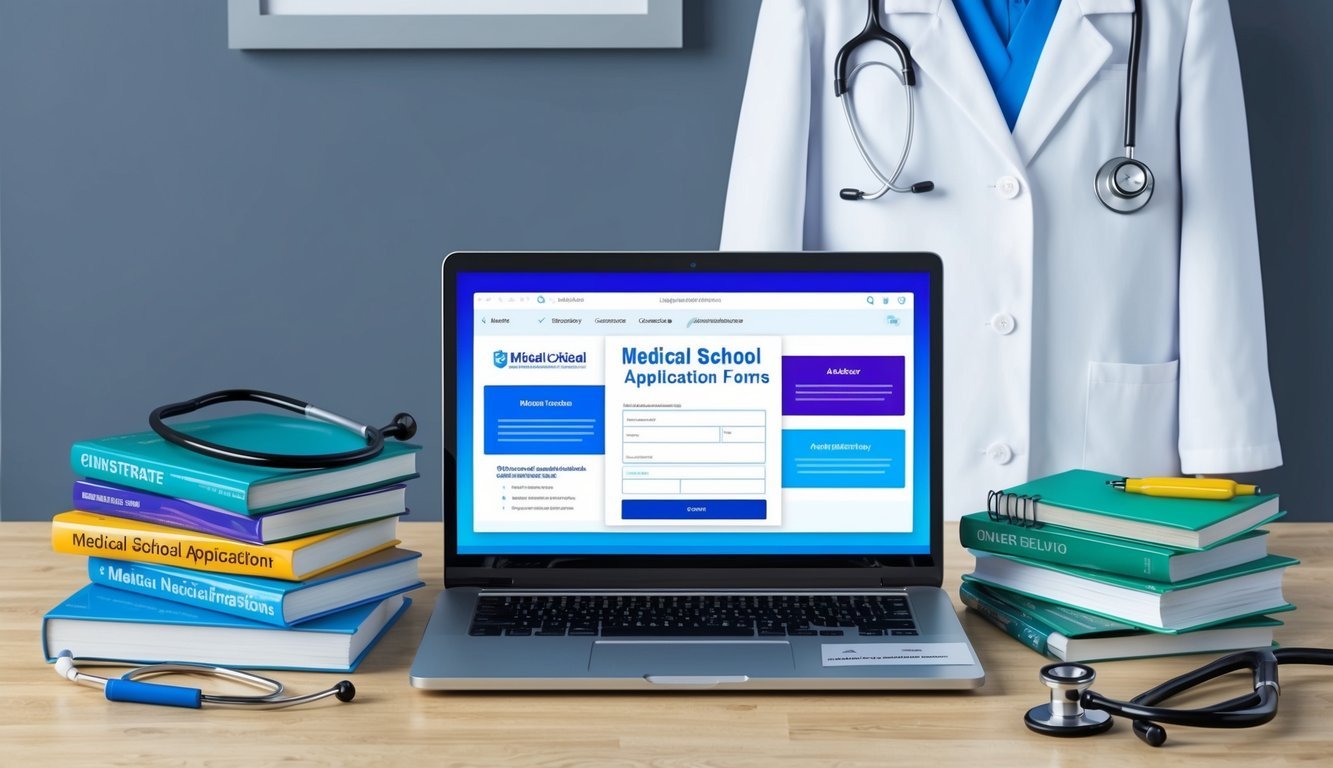Transitioning from a nurse to a medical doctor is a journey that many healthcare professionals consider.
This path not only allows you to enhance your career but also expands your capacity to influence patient care significantly.
As a nurse, you already possess a strong foundation in healthcare, making the leap to becoming a physician more accessible.
Understanding the prerequisites, from academic qualifications to clinical experiences, is crucial for your success.
Engaging in this progression can transform your role in patient advocacy and medical decision-making.
This article will outline the essential steps you need to take and provide insights into the challenges and rewards of this career transition.
By knowing what to expect, you can better navigate your path from RN to MD and realize your aspirations in the medical field.
Pathways from Nursing to Medicine
Transitioning from a registered nurse (RN) to a medical doctor (MD) involves several educational requirements and program options.
Understanding these pathways can help you navigate this career change effectively.
Understanding RN to MD Programs
RN to MD programs offer a streamlined route for nurses seeking to become physicians.
These programs often have specific prerequisites and may accept certain nursing coursework as credit.
Before applying, you should review the requirements of each medical school since they can vary widely.
Important aspects include:
- Prerequisite Courses: Most medical schools require coursework in biology, chemistry, and physics.
- Application Process: You will need to take the Medical College Admission Test (MCAT) and utilize the American Medical College Application Service (AMCAS) for submissions.
Resources like Nurse.org provide further insights into specific programs you might consider.
Bridging the Educational Gap
To address any knowledge gaps left by your nursing education, you may need to take additional science courses.
This step is crucial for ensuring you meet the medical school standards.
It may also help strengthen your application.
Here’s a brief overview of the educational requirements:
| Requirement | Details |
|---|---|
| Bachelor’s Degree | A bachelor’s degree is mandatory, preferably in science. |
| MCAT | Most schools require a valid MCAT score. |
| Additional Courses | Chemistry, biology, and physiology may be necessary. |
Seeking advice from academic advisors can help in identifying these gaps.
Post-Baccalaureate and Bridge Programs
Post-baccalaureate and bridge programs are specifically designed for career changers like you.
These programs allow you to complete the necessary prerequisites and enhance your academic background for medical school.
Key features include:
- Duration: Typically 1-2 years of full-time coursework.
- Focus Areas: Emphasis on sciences and medical ethics.
- Networking Opportunities: Many programs provide connections to medical schools and mentorship.
Programs can vary greatly, so researching options that align with your career goals is essential.
Consider looking into resources like Registered Nursing for additional information on available programs.
Preparation for Medical School Admission

Preparing for medical school admission involves strategic planning and a focused approach.
You need to meet academic requirements, craft a compelling narrative about your journey, secure strong recommendations, and engage in relevant extracurricular activities.
Academic Prerequisites and MCAT Preparation
To apply for medical school, you must complete specific academic prerequisites, generally a bachelor’s degree, and required pre-medical coursework.
Common subjects include biology, chemistry, physics, and mathematics, which form the foundation needed for success in medical education.
Once your coursework is complete, you’ll need to prepare for the Medical College Admission Test (MCAT).
This standardized exam assesses your knowledge in key scientific concepts and critical thinking abilities.
It’s essential to allocate ample time for its preparation, typically several months.
Many candidates choose to enroll in preparatory courses or use study guides to enhance their performance.
Crafting a Compelling Personal Statement
Your personal statement is a vital component of your medical school application.
It offers insight into your motivation for pursuing medicine and your unique experiences.
Start by reflecting on your nursing background and how it has shaped your desire to become a physician.
Highlight specific experiences that sparked your interest in medicine.
Use clear and engaging language, and ensure the statement is well-structured.
Incorporate your goals as a future physician and how they align with the mission of the schools to which you are applying.
This narrative will give admissions committees a glimpse of your personality and commitment to the medical profession.
Gathering Letters of Recommendation
Strong letters of recommendation are crucial in supporting your medical school application.
Aim to gather at least three letters from individuals who can attest to your academic abilities, work ethic, and potential as a physician.
Consider professors from your undergraduate studies and supervisors from your nursing role.
Provide your recommenders with guidance on what to include, such as notable experiences or skills you’d like them to highlight.
Additionally, be sure to check the specific requirements of the medical schools applying to as they may have preferences regarding who should write these letters.
The Role of Extracurricular Activities and Research
Engaging in extracurricular activities and research can significantly enhance your medical school application.
These experiences demonstrate your commitment to medicine outside of academics.
Participate in volunteer work, healthcare-related activities, or leadership roles in community organizations.
These experiences help develop skills such as teamwork and compassion, essential qualities for a physician.
Involvement in research showcases your ability to engage with scientific inquiry.
Consider seeking opportunities related to healthcare or clinical studies, as they not only bolster your application but also deepen your understanding of the medical field.
A well-rounded application enhances your candidacy, making you a more attractive prospect to medical school admissions committees.
Navigating Medical School Admissions
Navigating the process of medical school admissions can be intricate and requires careful preparation.
Understanding the application process, the importance of interviews, and how to manage financial aspects is crucial for success.
The Medical School Application Process
To apply to medical school, you must start by completing the Medical College Application Service (MCAS).
This centralized system is used by most U.S. medical schools.
Your application typically includes:
- Academic transcripts
- Personal statement
- Letters of recommendation
- MCAT scores
You need to take the Medical College Admission Test (MCAT), which assesses your foundational science knowledge and critical thinking.
Most schools require your MCAT score to be submitted before their deadlines.
Aim for a competitive score, as this is a significant factor in decision-making.
Interviews and Secondary Applications
Once you submit your primary application, expect secondary applications from many medical schools.
These often require additional essays and information about your experiences.
Interviews are a critical step.
They can be traditional or conducted in a Multiple Mini Interview (MMI) format.
Preparing for them involves:
- Researching the school
- Practicing common interview questions
- Reflecting on your experiences and motivations
Your performance in interviews can significantly influence admission decisions, so ensure you present yourself confidently and authentically.
Understanding Financial Aid and Medical School Costs
The cost of medical school is substantial, often exceeding $200,000 for a four-year program.
It’s vital to understand how to manage these expenses.
Consider applying for financial aid, which can include:
- Grants
- Scholarships
- Federal student loans
Many schools provide financial aid offices that can help you explore your options.
Start the process early and be aware of deadlines for applications like the FAFSA.
Planning and budgeting for these costs will help you alleviate some financial pressure during your studies.
Make informed decisions by researching each school’s specific aid offerings and terms.
Medical School Journey for Registered Nurses
Transitioning from a nurse to a doctor involves several critical stages during your medical education.
Understanding these steps can help you navigate the complex landscape of medical training efficiently.
Clinical Rotations and Patient Care Experience
As you progress through medical school, clinical rotations are essential for hands-on learning.
These rotations allow you to apply theoretical knowledge in real-world settings, enhancing your patient care skills.
Typically spanning your third and fourth years, rotations cover various specialties, such as internal medicine, pediatrics, and surgery.
During each rotation, you will work under the guidance of experienced physicians.
Your responsibilities may include conducting patient histories, performing physical exams, and assisting in procedures.
This exposure is vital for developing clinical acumen and decision-making skills, essential traits for any physician.
Keep in mind that your nursing background can be beneficial.
You bring valuable patient care experience, which may ease your transition into unfamiliar medical environments.
USMLE and Medical Licensure
To practice medicine in the United States, you must pass the United States Medical Licensing Examination (USMLE).
The USMLE is a three-step examination:
- Step 1: Assesses your understanding of basic medical sciences.
- Step 2: Evaluates your clinical knowledge and skills.
- Step 3: Tests your ability to manage patients in various settings.
Achieving passing scores on all three steps is crucial for obtaining your medical license.
Once you pass the USMLE, you can apply for state licensure, allowing you to practice medicine legally.
Each state has unique requirements, so ensure you understand your target state’s regulations.
Specialization Through Residency and Fellowship
After completing medical school, you enter a residency program, a critical phase of your training.
Residencies typically last between three to seven years, depending on your chosen specialty.
Your choice will shape your medical career, whether you aim for family medicine, surgery, or another area.
During residency, you receive extensive training through hands-on experience and mentorship.
You will work long hours and face the challenges of patient care.
After residency, you may opt for a fellowship for additional specialization.
Fellowships typically last 1-3 years and provide in-depth training in a specific area, such as cardiology or oncology.
Completing a fellowship positions you for board certification, further enhancing your qualifications in your medical career.
Transition to Practice: Becoming a Physician
Transitioning from a nurse practitioner or another nursing role to a physician involves several critical steps, including selecting the right residency program, preparing for the board certification exam, and understanding the career outlook and advancement opportunities.
Each of these components is essential for your successful integration into the healthcare system as a medical doctor.
Navigating Residency Program Selections
Selecting a residency program is a pivotal step in your journey to becoming a physician.
Various specialties are available, including family medicine, internal medicine, pediatrics, and surgery.
Research each program’s curriculum, training opportunities, and mentoring culture to find the best fit for your career goals.
You may consider factors such as location, program size, and hospital affiliations.
Use resources like the National Resident Matching Program (NRMP) to explore available programs and their specific requirements.
In addition, reaching out to current residents and attending open houses can provide valuable insights into the program environments and expectations.
Preparing for the Board Certification Exam
Once you complete your residency, you must prepare for the board certification exam relevant to your specialty.
This exam evaluates your knowledge and skills necessary for effective patient care.
Start early with a study plan that includes review courses, practice questions, and study groups.
Many comprehensive resources are available, such as the American Board of Medical Specialties (ABMS), offering guidelines and exam details.
Familiarize yourself with the exam format and content areas.
Consider taking practice tests to build confidence and identify areas for improvement.
Remember, your performance on this exam is crucial for licensure and future career opportunities.
Career Outlook and Advancement Opportunities
Physicians have a strong career outlook, with a projected demand for medical professionals in various specialties.
This demand is due to factors such as an aging population and expanded healthcare access.
As a physician, you can pursue diverse career options.
These include hospital-based roles, private practice, or academic positions.
Additional certifications may enhance your career prospects.
For example, you can become a Certified Registered Nurse Anesthetist (CRNA) or a Certified Nurse Midwife (CNM).
Developing a robust bedside manner and strong patient relationships can positively impact patient outcomes.
This can also enhance your reputation in the healthcare field.
As you progress in your career, consider leadership roles or teaching opportunities.
These can lead to further advancements and a satisfying professional life.

